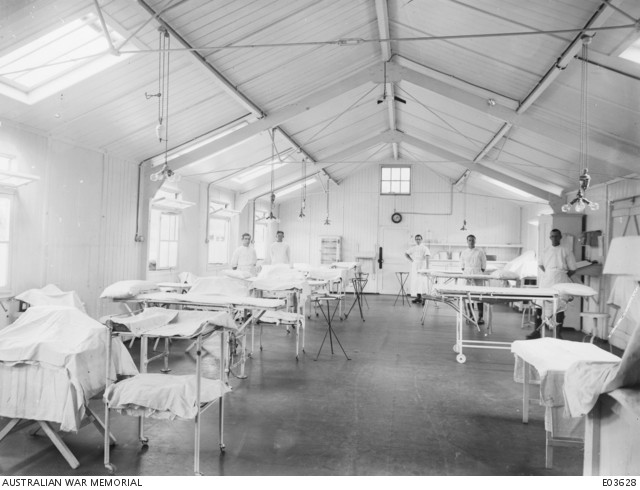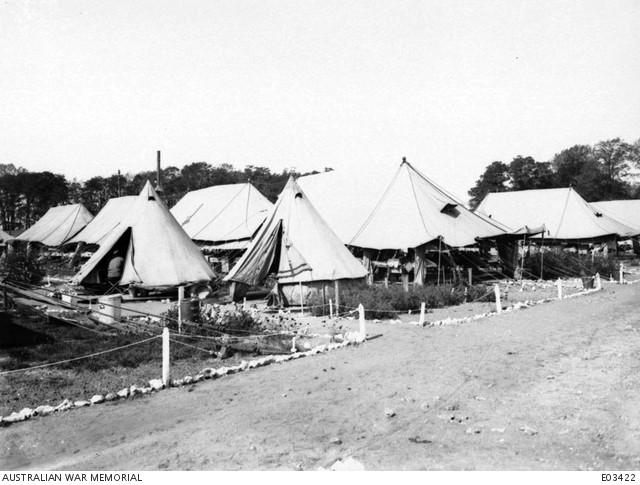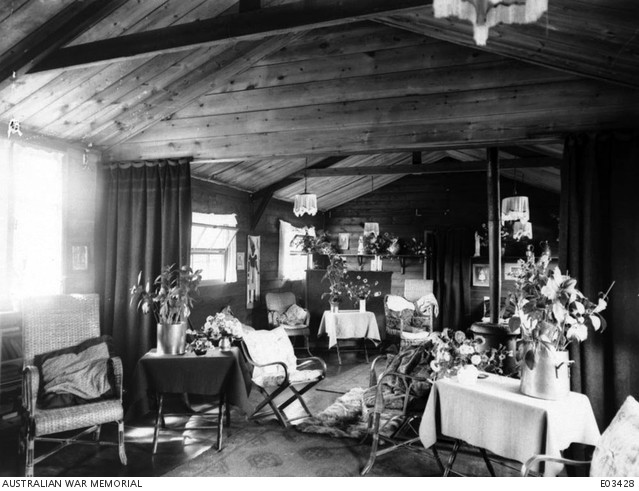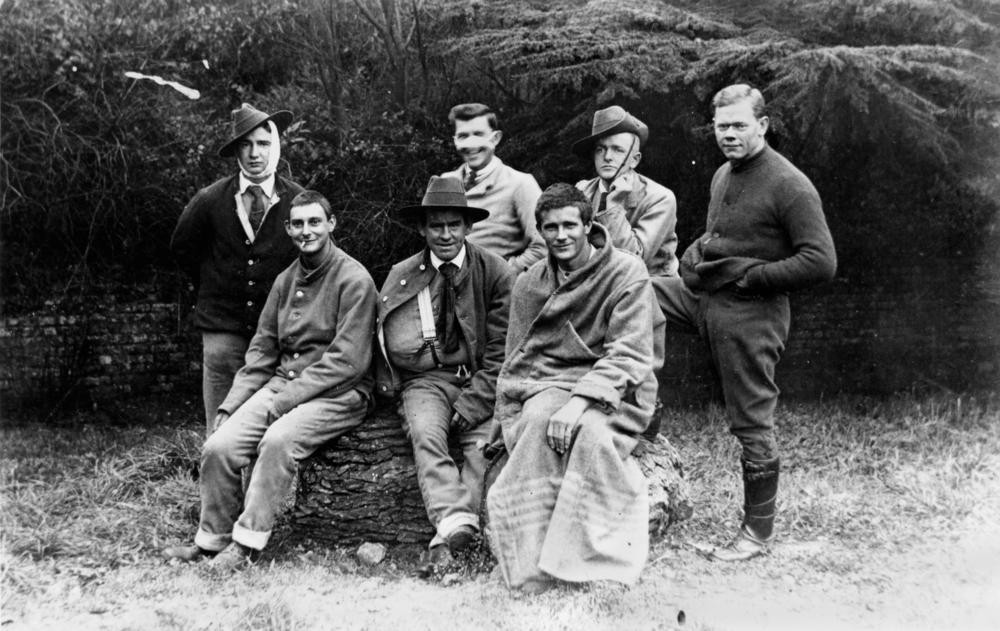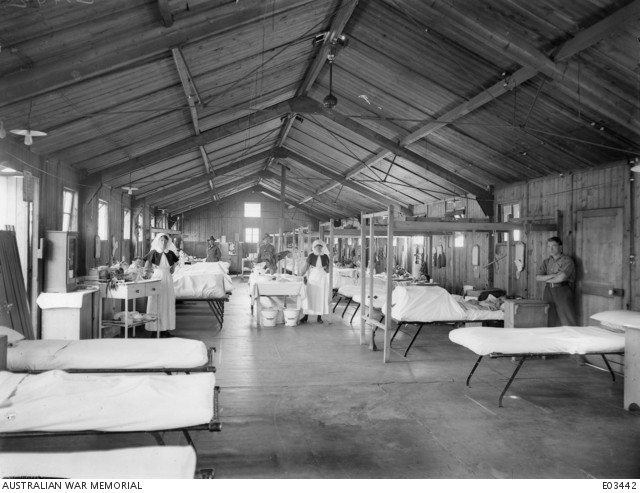Guest blogger: Avril Fazel, Head of Department, Blackall State School.
On February 24th 1917, Greta was detached from the No 2 Australian Auxiliary Hospital at Southall for a posting in France at the 8th Stationary Hospital based at Wimereux arriving on the 2nd March 1917. The 8th was a British hospital, one of over ten hospitals in the French sea side town, and it was the headquarters of the Queen Alexandra’s Imperial Military Nursing Service (QAIMNS). It was common for Australian nurses to be assigned to British hospitals. In 1919, The Sydney paper, The Sunday Times, reported “The Imperial Government… lent Sister Towner to the French, and she saw service in the French military hospitals” perhaps it was during this time with the British that she nursed in French military hospitals. Inquiring into the 8th Stationary Hospital unit diaries may support the newspaper article. Later, on 27th September she was posted for duty with the No 1 Australian General Hospital (1AGH).
The No. 1 Australian General Hospital was based at the racecourse in Rouen from 17 April 1916 until 7 December 1918. In total, 1AGH admitted 90,298 patients (sick 46,187; wounded, 41,111) — an average of 2,913 per month — with 11,488 examined by X-ray department (Butler p780). It was one of about 15 allied hospitals in the town.
Rouen, 1917 and 1918, Greta was caring for the wounded and diseased from the Western Front – a period that included many significant battles at the Somme, including at well-known places such as Ypres, Morlancourt, Mont St Quentin and Menin Road. (Note: her brother, Edgar Towner, in 1918 was twice mentioned in dispatches and awarded the Military Cross at Morlancourt and the Victoria Cross at Mont St Quentin.)
Kirsty Harris in her book, More than Bombs and Bandages, allows us to understand the possible conditions and experiences Greta faced. Greta would have dealt with the European winter that saw the medicines and thermometers freeze, the nurses taking to cutting off the tip of their gloves to be able to take a pulse without removing them. Hot water bottles froze if left out in the open and the procedure of shaking off the ice on the blankets of their patients in the mornings became common.
In addition, the nurses were dealing with medical conditions that civilian nursing in Australia had not prepared them for – trench foot, frost bite, G.S.Ws (gunshot wounds), shell-shock and poison gassings.
All of these conditions required much attention from the nurses – gas patients were left gasping for air as their eyes ‘glued up’ requiring constant bathing as did the blisters caused by some forms of gas.
Gunshot wounds required surgical procedures where nurses assisted often as anaesthetists, whilst others took on pharmacist roles – dispensing medicines.
The men with trench foot required layers of mud soaked putties and socks to be pulled away from the gangrene rotting feet of the men with trench foot. Greta’s experiences on Lemnos Island with frostbite might have stood her with some knowledge of treating these conditions – however, it is likely that she saw many men’s feet amputated due to both trench foot and frostbite. Did her experiences at the 2AAH, Southall see her take on a surgical role in amputations?
Influenza, coughs, colds and lice infestations added to the challenges of nursing the men from the Western Front. Nurses were also dealing with conditions such as shell shock and those who had self-inflicted wounds.
After the horrors of Lemnos Island, Greta continued to serve on the Western Front – these experiences must have affected the bush girl from Central Western Queensland.
More blogs about Greta Towner
Comments
Your email address will not be published.
We welcome relevant, respectful comments.
